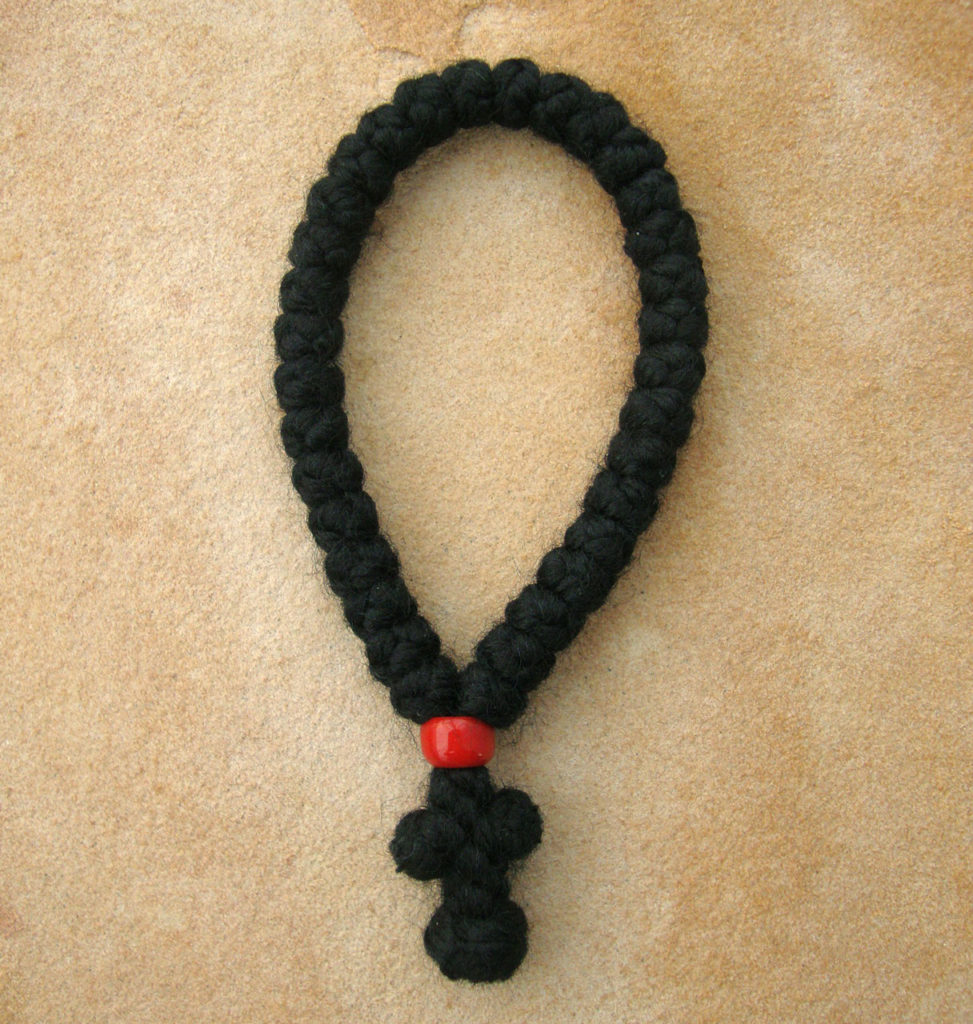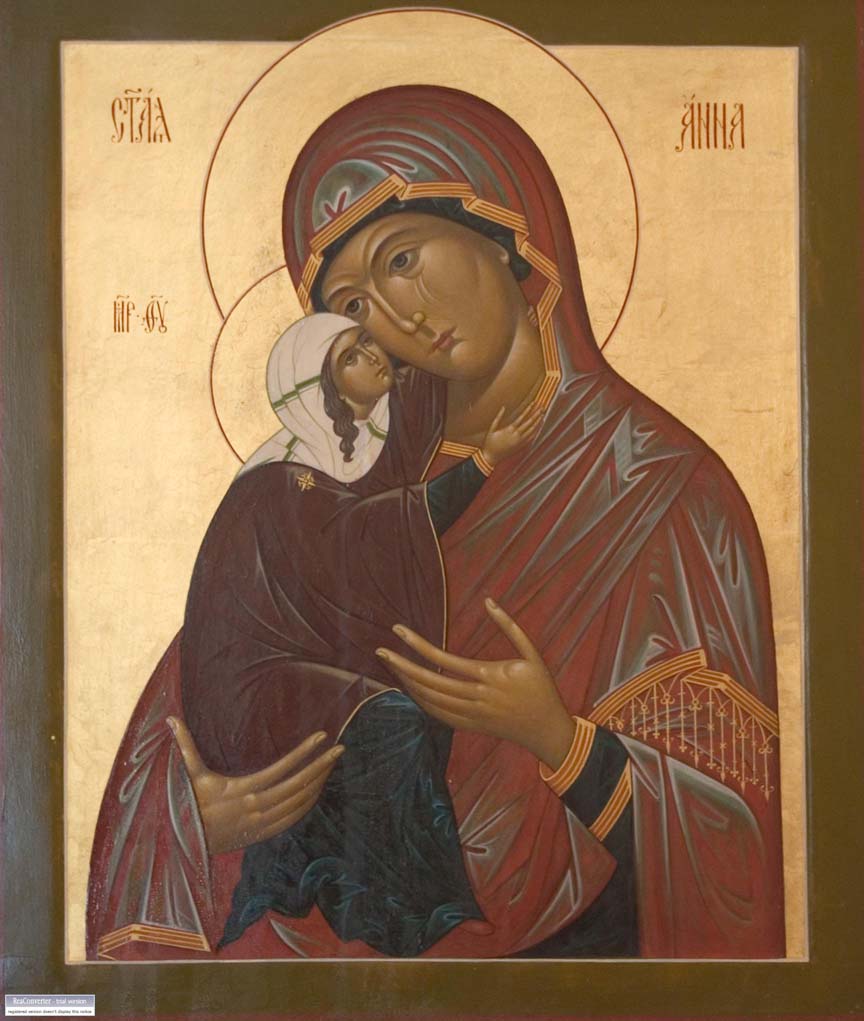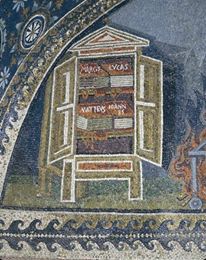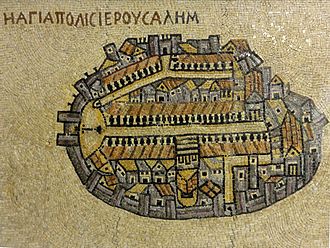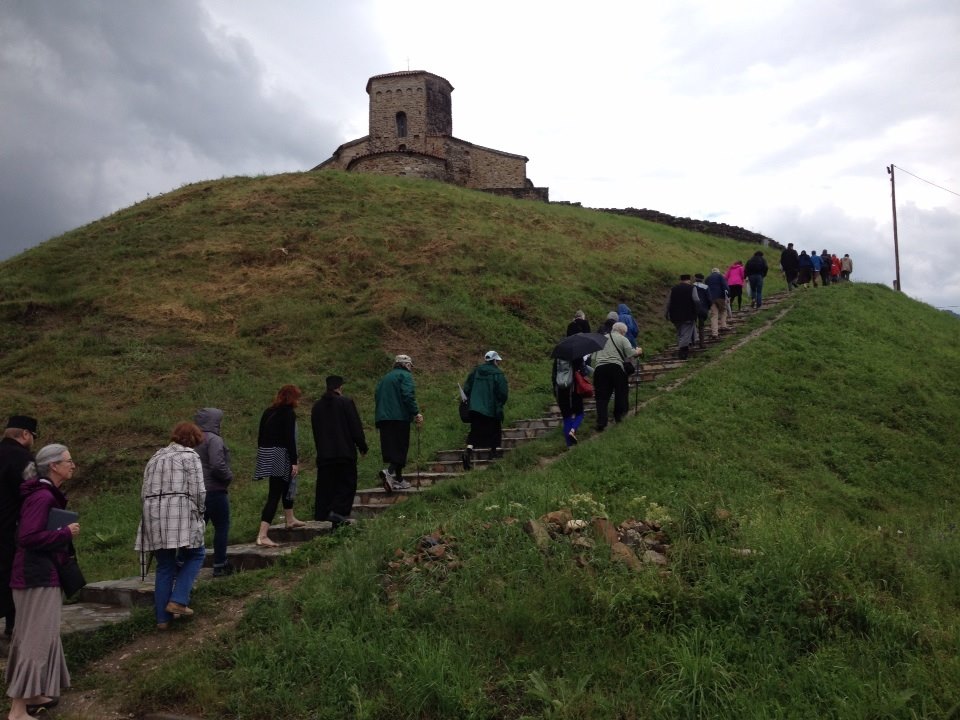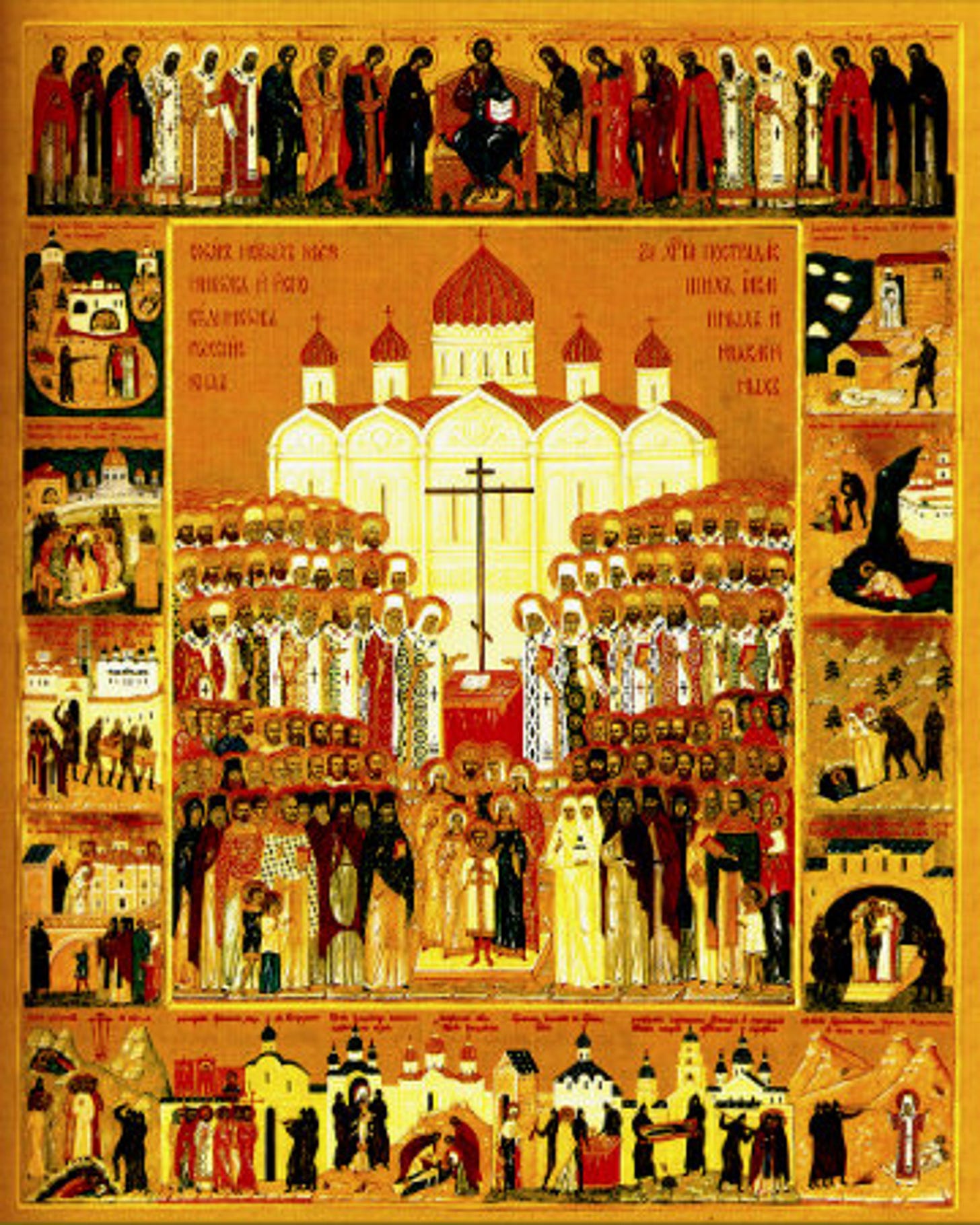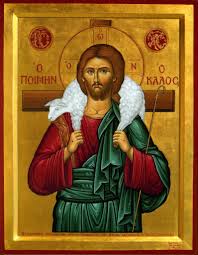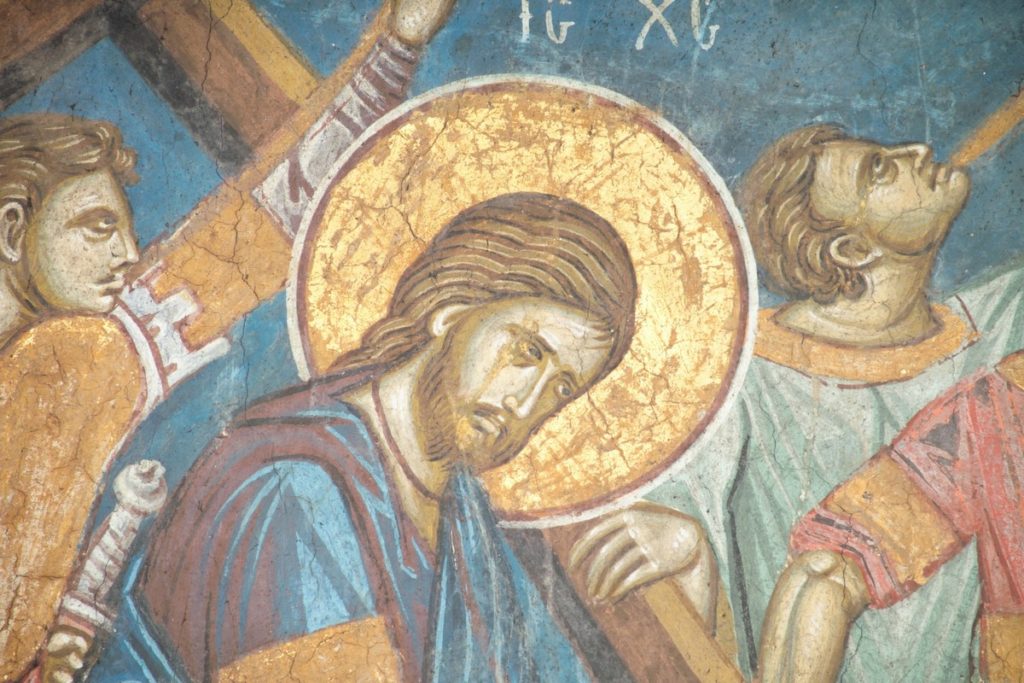You can listen to an audio podcast of this post at https://www.spreaker.com/user/youngfaithradio/lk12fri-2
Friday of the 12th Week of Luke
In today’s Gospel, we read that Satan entered into Judas, and he decided to betray the Lord Jesus Christ:
At that time Jesus was teaching in the temple; and at night he went out, and abode in the mount that is called the mount of Olives. And all the people came early in the morning to him in the temple, for to hear him. Now the feast of unleavened bread drew nigh, which is called the Passover. And the chief priests and scribes sought how they might kill him; for they feared the people. Then entered Satan into Judas surnamed Iscariot, being of the number of the twelve. And he went his way, and communed with the chief priests and captains, how he might betray him unto them. And they were glad, and covenanted to give him money. And he promised, and sought opportunity to betray him unto them in the absence of the multitude. Then came the day of unleavened bread, when the passover must be killed. And he sent Peter and John, saying, Go and prepare us the passover, that we may eat. – Luke 21:37-22:8
St. Theophan the Recluse, in commenting on Judas’s betrayal, teaches us how not to become Judases ourselves: we must watch constantly over the door of the mind and heart, and consistently repel bad thoughts:
Satan entered into Judas, and taught him how to betray the Lord; he agreed, and betrayed Him. Satan entered because the door had been opened for him. What is within us is always closed; the Lord Himself stands outside and knocks, that we might open it. What causes it to open? Sympathy, predisposition, and agreement. If all of this is inclined in the direction of Satan, he enters. If, on the contrary, it is inclined toward the Lord, then the Lord enters. If Satan enters, and not the Lord, the person himself is guilty. If you do not allow thoughts pleasing to Satan, if you do not sympathize with them, or dispose yourself to their suggestions and agree to do them, Satan will come near, and then leave. After all, he is not given authority over anyone. If he takes possession of anyone, it is because that person gives himself over in slavery to him. The source of all evil is in one’s thoughts. Do not allow bad thoughts, and you will forever close the door of your soul to Satan. That bad thoughts come – what can you do? No one in the world is without them, and there is no sin here. Chase them away, and that will end everything. If they come again, chase them away again – and so on for your entire life. When you accept thoughts and become engaged in them, it is not surprising that sympathy for them appears as well; then they become even more persistent. After sympathy come bad intentions for some sort of bad deeds. Vague intentions define themselves later by an inclination toward one thing or another. Acceptance, agreement, and resoluteness set in, and now sin is within! The door of the heart is opened wide. As soon as agreement forms, Satan jumps in and begins to tyrannize. Then the poor soul, like a slave or a pack animal, is driven and wearied into doing indecent things. If it had not allowed bad thoughts, nothing of the sort would have happened. – Thoughts for Each Day of the Year, pp. 275-276.
We imagine the great events in history as dramas played out by people we have never met on a vast stage outside of ourselves: Bloody battles, fateful decisions by famous rulers, stock market crashes, royal marriages and divorces, civil wars and revolutions, political assassinations, scientific discoveries, leaps in technology, and so forth. Here, however, in today’s Gospel, we see that what is beyond measure the greatest event in history, whose effect on us eclipses that of all other events combined, from the beginning to the end of the world – that is, the world-saving, infinite Sacrifice of the God-Man for our salvation – comes about, on the human level, when an obscure and finite man gives in to a bad thought. God, of course, turns this finite evil to infinite good in His divine Providence. But, in the words of Christ Himself, it had been better for Judas had he never been born. He has destroyed himself by allowing one evil thought – the envy of the goodness of Jesus – to capture his mind and darken his heart.
St. Theophan provides a short primer on guarding ourselves from doing what Judas did. He describes the stages of sin: First, there is the thought, which is involuntary and is not a sin. Sin ensues and gradually worsens when we engage the thought, then sympathize with it, then agree with it, and then do what the thought suggests. Finally, one who keeps doing this becomes enslaved to evil habit and becomes helpless to resist temptation altogether, which is a foretaste of hell.
What must we do to avoid this terrible fate? Very simple: as St. Theophan says, “Do not allow bad thoughts, and you will forever close the door of your soul to Satan.” The real Christian life entails continuous warfare within the mind to resist every evil thought, even the slightest. The Orthodox Church teaches its children how to do this, and the grace in the Church gives them the power so to do. All the writings of the saints on the ascetic life keep getting back to this central point: resist evil thoughts! Keep your heart pure! Do not sin for one moment even by engaging an evil thought to dispute with it; just drive it away.
We cannot, of course, do this on our own; it is humanly impossible. Only by the grace of Jesus Christ, and the power of His holy name, can we drive away the enemies at the gates ever fighting against us. If we repeat His holy name – the name of Jesus – continually, and cry out to Him for aid, admitting our powerlessness, He will come and abide in us, and He will save us. The soul that has Christ within will not fear death, and at the hour of death will joyfully leave the body and fly unhindered to its beloved Lord. Here is what St. Hesychius of Jerusalem says:
When after death the soul soars into the air to the gates of heaven, it will not be shamed by its enemies even there, if it has Christ with it and for it; but then, as now, it will boldly “speak with the enemies in the gate.” So long as it does not grow weary of calling to Our Lord Jesus Christ, Son of God, day and night till death itself, He will avenge it speedily, according to His true promise, given in the parable of the unjust judge: “I tell you that he will avenge them speedily” (Luke 18: 8) – both in this life and after leaving the body. – Texts on Sobriety and Prayer, No. 149, by St. Hesychius of Jerusalem.
The door of the heart and the door of Paradise are the same door. Our enemies wait at the gate of the heart to enter in, in this life, as they will wait at the gate of heaven, in the next life, to prevent our entry there. Let us resolve never to abandon the Jesus Prayer, to make time daily for the Prayer at set times, even for a few minutes a day, when we are alone, and then to carry it with us through the day. The holy name of Jesus has infinite, divine power, because it is the human name of the Incarnate God, and it conveys to us all the grace of God. It cannot fail.
“For whosoever shall call upon the name of the Lord shall be saved.” – Romans 10:13
